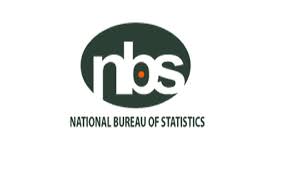
To combat rising inflation in the country, companies increased the salaries of their staff members by 18.35 per cent to N29.45 trillion in the first six months of 2023.
This is based on data from the National Bureau of Statistics ‘Nigerian Gross Domestic Product Report (Expenditure and Income Approach): Q1, Q2,’ report. Compensation of employees, which is the total remuneration in cash or in kind payable by employers to employees for the work done rose from N24.88tn as of the first half of 2022 to N29.45tn as of the first half of 2023.
This increase coincides with worsening economic conditions in the country, with workers faced with higher prices and cost of living.
Commenting on the compensation of employees in the period under review, the NBS said, “In Q1 and Q2 of 2023, the Compensation of Employees grew by 15.08 per cent and 19.41 per cent respectively in real terms year-on-year.
“These growth rates were higher than the Q1 of 2022 and Q2 of 2022 rates recorded at 6.48 per cent and 3.93 per cent respectively. On a quarter-on-quarter basis, the CoE in real terms fell by 3.33 per cent in Q1 and grew by 11.25 per cent in Q2 of 2023. In nominal terms, the compensation of employees grew by 16.03 per cent and 20.50 per cent in Q1 and Q2 of 2023 respectively.”
The NBS defined compensation of employees as “the total remuneration in cash or in kind payable by employers to employees for the work done.
“Direct social transfers from employers to their employees or retired employees and their family, such as payments for sickness, educational grants and pensions that do not set up an independent fund, are also imputed to compensation of employees.”
In the period under review, firms, including SMEs, grew their operating surplus to N67.56tn, an 11.93 per cent increase from the N60.36tn that was recorded in the first of 2022.
Defining operating surplus, the NBS said, “This is equal to the profit that remains for firms after costs have been covered. It includes the profit of those who are self-employed, which is often included in the national accounts under the entry “Mixed Income”. It is calculated as a residual.”
Record high inflation and the removal of fuel subsidy has weakened the purchasing power of Nigerians and exacerbated poverty in the country.





